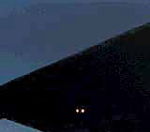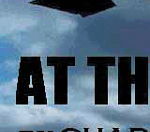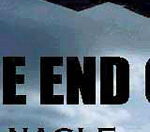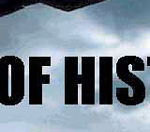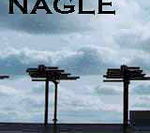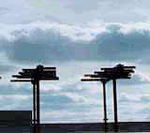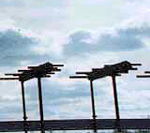Former
Antiwar.com columnist Chad Nagle sends this special report from
Washington.
September
21, 2002
Will
Congress Rubber-Stamp an Unpopular War?
"I
don't think the President has a view of the Constitution that
Congress is a rubber stamp."
~
Secretary of State Colin Powell, answering a question in hearings
by the House Committee on International Relations, 19 Sept. 2002.
On
Thursday, September 19th, at the House International
Relations Committee hearings on invading Iraq, Chairman Henry
Hyde (R-IL) attempted to inject a little levity by paraphrasing
late Supreme Court Justice Oliver Wendell Holmes. Mr. Hyde cautioned
everyone present not to "forget" about Richard Perle,
"lurking over us like a brooding omnipresence." A few
people actually laughed.
Perle,
one of four people testifying before the committee on the subject
of invading Iraq, couldn't be there physically, so he appeared
instead by live video broadcast from the US Embassy in London.
Apart from the two small screens on the walls on either side of
the hall, I noticed a cinema-size screen on the back wall facing
the members of the House, on which Mr. Perle's gigantic image
appeared. The larger-than-life, bloated and dark-eye-socketed
Perle – the "Prince of Darkness," who once passed classified
information to the Israeli Embassy when working as a US Senate
staffer in the 1970s – could therefore hardly be "forgotten."
Quite the contrary, he was looking down on everyone present, a
constant reminder to the mere mortals of exactly who was running
the show.
THE
KANGAROO HEARINGS
After
Perle made his opening statement, warning of the dire threat posed
by the evil Saddam Hussein to the "American people"
and the "imminent" need to invade and remove the dictator,
a couple of feeble speakers in the form of Jessica Tuchman Mathews
of the Carnegie Endowment for International Peace and retired
Air Force Gen. Charles Boyd of Business Executives for National
Security took their turns laying out an impossible UN inspection
plan. The idea was to implement a "coercive" inspection
regime with a force of 50,000 troops that would be "large
enough to be turned into an invasion force if necessary."
They claimed they wouldn't want the Iraqis to think the inspection
force was just a "Trojan Horse" for an invasion. They
wouldn't want the Iraqis to think the inspectors were "spies"
or anything. The idea: to sink the "plan" in committee
because everyone knew that any head of state worth his salt –
even Saddam – would conclude exactly that, and would be right
to.
It
was an easy set up for former CIA director James Woolsey, now
vice president of consulting giant Booz Allen & Hamilton,
to pick apart. Launching into a laundry list of human rights violations
by Saddam, Woolsey said that the last time the UN sent inspectors
in, no one in Iraq had been able to speak candidly to them because
a functionary of Iraqi intelligence had always been sitting next
to them during the meetings. Then the patriotic Woolsey went into
all the ways Iraqi "weapons of mass destruction" and
their manufacturing facilities could be miniaturized – like "a
microbrewery attached to a restaurant" – and hidden. For
good measure, he threw in a lot of allegations of torture, murder
and (to get the female blood going) rape of the wives and daughters
of Iraqis who dared to talk. And then towards the end of his little
speech he said something that should have elicited laughs but
didn't. He said that all of Iraq's production facilities for "ballistic
missiles" with a range greater than a hundred and fifty kilometers
had to be removed. A hundred and fifty kilometers – less than
a hundred miles. An "imminent threat" to the "American
people."
The
aged, heavily-accented Tom Lantos (D-CA) threw softballs to Richard
Perle by prefacing his questions with remarks about "no practical
chance" that the inspection plan would succeed. Saddam Hussein
had already "sacrificed fifty, seventy-five, a hundred billion
dollars to develop weapons of mass destruction." He challenged
Ms. Tuchman Mathews as to whether the invasion could really be
thought of only as "regime change" or rather as "liberation"?
Would she describe the WWII Allied invasion of Germany and the
Soviet Army's advance to Berlin as occupation or "liberation"?
There was a pause before Tuchman-Mathews answered, timidly: "That
was a liberation." It was a decade after the fall of the
Soviet Union, and Stalin's occupation of East Germany could now
be given the historical stamp of "freedom" without anybody
raising an eyebrow.
Then
Lantos let slip an admission that the whole proceedings were bogus.
He condescended to tell Ms. Tuchman-Mathews and Gen. Boyd that
however well-intentioned their inspection plan might be, there
was "no middle way in this crisis." In other words,
one way – the antiwar, non-interventionist way – wasn't even represented
among those specially lined up to testify. You had a choice between
military intervention and military intervention "lite."
Very few reps were going to risk appearing "lite" in
their loafers. It was all stitched up.
A
handful of Democrats and one Republican held up the losing side
when the odious Colin Powell appeared in the afternoon. Cynthia
McKinney (D-GA), recent casualty of a hatchet job by her own party
that caused her to lose the Democratic primary in her district,
came out swinging, noting "with some sadness" the coup
attempt in Cote d'Ivoire, whose oil reserves made it a "target
for intrigue and subversion." How odd, she said, that the
US should be so concerned about Iraqi human rights that it would
intervene militarily in the Arab state. There seemed to be no
such concern during mass atrocities in Sudan, Congo, East Timor,
and Sierra Leone, where – she noted – children were getting their
hands and feet hacked off at one stage. She had evidently come
into possession of a two-year-old plan by the administration for
"regime change" in Iraq involving US troops being deployed
to guard oil installations in and around Basra. She read that
James Woolsey was already divvying up the oil spoils among his
company's clients, and deciding who would be left out.
Er…
uh… "I'm troubled by some reports in the press suggesting
this is all about oil." It was really all about "human
rights," said the Secretary. As for the countries she mentioned,
"we've been working with all of them." The report about
Mr. Woolsey: "I don't know what that is." Mr. Woolsey,
like Mr. Perle, was appearing before the committee primarily in
the capacity of a concerned American citizen. Of course Woolsey
was concerned about revenue from Iraqi oilfields accruing to other
American citizens – corporations on Booz Allen's client list –
but that was still a legitimate sort of concern for an American
citizen, wasn't it?
Jim
Davis (D-FL) and William Delahunt (D-MA) both wanted to know why
America was going to attack Iraq now when the government apparently
had all this information about how dangerous Saddam Hussein was
long ago. No connection had been made between Saddam Hussein and
9/11, so why had the standard changed? What was the urgency? What
were they supposed to tell their angry constituents? Robert Menendez
(D-NJ) and Gregory Meeks (D-NY) wanted to know what made Iraq
such an imminent threat now when he had supposedly been building
up his "weapons of mass destruction" for so many years.
The Secretary was reciting "everything that happened in the
past as justification for a sudden invasion." Yet there was
a perception among Congress and the public that this was "too
sudden," added Adam Schiff (D-CA). We weren't attacked on
September 11th with chemical or biological weapons,
so where is the "irrefutable evidence" that Saddam Hussein
poses such a threat? Why are we doing this now?
"But…
why wait another year?" asked the Secretary.
Barbara
Lee (D-CA) raised concerns about the discussion draft of the White
House resolution she had received earlier in the day. The resolution
implied that Congress had already expressed its support for "regime
change" by reference to a couple of public laws, neither
of which she voted for. The White House had tried to sneak these
laws in the back door, because – as Ms. Lee found out later by
talking to a few colleagues – several members of the House had
no idea they were voting to authorize the use of force. To them,
"regime change" in Iraq meant: "We would like it
if the regime changed." It didn't mean: "Let's go in
and change it." Is the Secretary trying to say that the US
would have reacted differently last time if the Iraqis had refused
inspectors?
"ER…
I don't know that it would have been any different… I don't have
the two public laws you cite in front of me."
"Why
are we so hated?" demanded Diane Watson (D-CA). "What
did we do to incur such hatred?" Presumably, the chief diplomat
should have had some idea. "I'm from California," she
went on, "and I haven't heard yet what I could tell voters
about why we should have a preemptive attack." Why should
Congress authorize "all the force the President deems necessary"?
"Uh…
some people don't like our system and think we support the wrong
side in the Palestinian conflict… There's a lot of resentment."
Ron
Paul (R-TX) – always sensible, always level-headed – made the
salient point that Soviet ballistic missiles had been "ninety
miles off our shores" when he had been called up during the
Cuban Missile Crisis in 1962, yet the US never actually went to
war. Iraq was six thousand miles away, half the size of Texas,
and had a GDP less than Idaho's. "A lot of people,"
he said, referring to thousands of letters he had received from
people concerned about going to war, "don't believe in war
as a solution." Were we really going to "liberate"
the Iraqis? Twenty Arab nations had voted to condemn the US war
plans, and in Egypt human rights groups were standing up for Egypt
and attacking America – even the political prisoner on whose
behalf the US was trying intervene!
This
was a little much for the Secretary, who wanted to make it clear
that he was a soldier too, and the call-up process had also begun
for him when the crisis broke. In a "don't pull that 'I served'
routine on me, Congressman" response, Powell assumed a general-like
demeanor as he made clear that the Cuban crisis had lasted a few
weeks, while the Saddam problem had gone on for twelve whole years!
Furthermore, Kennedy never took the time to pay a courtesy call
on the UN the way George W. Bush had. In the end, he claimed,
it was all about having the power to back up demands. Kennedy
had the power, while Khrushchev…
"If
I might just interrupt, Mr. Secretary," interjected the humble
Dr. Paul. "We took our missiles out of Turkey." It had
been a negotiated climb-down from the brink, done the civilized
way. No bluster about "regime change."
"But…
it wasn't just negotiations. It was backed by force."
The
cringing and fidgety Colin Powell, once the only hope within the
administration of averting war, had already shown what he was
made of by compromising any principles he might have had for the
sake, presumably, of keeping his job. From the time Chairman Hyde
shut up Cynthia McKinney at the beginning of the morning session,
the hearings were destined to become a first stage in rubber-stamping
an unpopular war. Perle is leading the charge for Israel, while
Woolsey picks up the sleazy oil business side of things.
OOZING
WITH SLEAZE
I'm
reminded of an op-ed I read in the March 17, 2000 edition of the
Wall Street Journal by none other than James Woolsey himself.
It was called "Why We Spy on Our Allies." Here is an
excerpt:
What
is the recent flap regarding Echelon and U.S. spying on European
industries all about? We'll begin with some candor from the American
side. Yes, my continental European friends, we have spied on you.
And it's true that we use computers to sort through data by using
keywords … That's right, my continental friends, we have spied
on you because you bribe. Your companies' products are often more
costly, less technically advanced or both, than your American
competitors'. As a result you bribe a lot. So complicit are your
governments that in several European countries bribes still are
tax-deductible … When we have caught you at it, you might be interested,
we haven't said a word to the US companies in the competition.
Instead we go to the government you're bribing and tell its officials
that we don't take kindly to such corruption. They often respond
by giving the most meritorious bid (sometimes American, sometimes
not) all or part of the contract. This upsets you, and sometimes
creates recriminations between your bribers and the other country's
bribees, and this occasionally becomes a public scandal. We love
it.
This
was written and published long after Woolsey had resigned from
the Clinton administration, but it was so reassuring to know that
we had such a principled man – such a paragon of virtue, uncorrupted
by the sordid dealings of petty men – directing our nation's primary
intelligence agency, even if only for a short while.
How
disturbing, therefore, to read a short report recently about how
Washington had been bribing foreign governments to get them on
board in the Iraq invasion. After France and Russia suddenly did
an about-face after a period of firm opposition, some malevolent
writer had the temerity to suggest that this had something to
do with American bribes. Of course, Jacques Chirac (dogged by
corruption scandals when mayor of Paris) and Vladimir Putin (in
charge of privatization and hard-currency operations as deputy
mayor of St. Petersburg during the heyday of the city's corruption
scandals) may have encountered the odd bribe here and there, but
from America? Never.
THE
BOLSHEVIK HIJACK
Following
is an excerpt from a note written by Lenin on March 19, 1922,
dug out of the archives in Moscow. It concerns the famine that
gripped Russia in 1921-22, and relates specifically to the small
industrial town of Chuya in Ivanovo Region, where Bolshevik troops
had just recently opened fire on a group of religious observers.
It sums up the Bolshevik regard for human life rather effectively:
With
the help of all those starving people who are starting to eat
each other, who are dying by the millions, and whose bodies litter
the roadside all over the country, it is now and only now that
we can – and therefore must – confiscate all church property with
all the ruthless energy we can still muster. This is precisely
the moment when the masses will support us most fervently, and
rise up against the reactionary machinations of the petit-bourgeois
Black Hundred religious conspirators… we must therefore amass
a treasure of hundreds of millions of rubles (think how rich some
of those monasteries are!)… All evidence suggests that we could
not do this at any other moment, because our only hope is the
despair engendered in the masses by the famine, which will cause
them to look at us in a favorable light or, at the very least,
with indifference…[A] large number of members of the clergy, of
bourgeoisie and petit-bourgeoisie, several dozen at least, [ ]
will be accused of direct or indirect participation in violent
resistance against the decree regarding the confiscation of church
goods… [T]he Politburo… will issue precise instructions to the
judicial authorities, to the effect that the trial of the Chuya
rebels is to be expedited as rapidly as possible. The result of
the trial is to be execution, by public shooting, of a large number
of the Chuya Black Hundreds as well as the shooting of as many
as possible from Moscow and other important religious centers…
The more representatives from the reactionary clergy and the recalcitrant
bourgeoisie we shoot, the better it will be for us. We must teach
these people a lesson as quickly as possible, so that the thought
of protesting again doesn't occur to them for decades to come.
The
run-up to the war and the control over the process by such a small
cabal has much in common with the exploits of the Bolsheviks,
another small band of conspirators. Like the Bolsheviks, the Perle-Woolsey
cabal is neither popular nor widely known among the people at
large. Like the Bolsheviks, they disdain democracy and believe
human life is largely expendable in the interests of a privileged
elite. And, finally, like the Bolsheviks, they have unshakable
faith in one self-evident, universal principle: Humanity must
lose.
Key
to the War Party's aims is that Congress and the UN pass resolutions
quickly, before anyone has time to realize what's going on. Hurry,
hurry, hurry. As Colin Powell was hurrying out of the hearing
room, he was surrounded by half a dozen secret service agents,
and even as he smiled at the crowds that were slowly rising and
moving toward the aisle like zombies in Night of the Living
Dead, I could see something unmistakable in his eyes: fear.
The popular chief diplomat of a popular government in a democratic
country was reaching forward to put his arm on the shoulder of
one of the secret service officers to let him know he was right
behind him and they could proceed out, away from the rabble. "Let's
go! Let's go! Let's go!" one of the agents was saying to
his colleagues. After all, it wasn't just al-Qaeda that might
want to get Gen. Powell. It might be some of these… "people."
Got to move fast. Got to make a quick exit and get into that armored
limousine. What a popular guy.
It
is now clear – and not just from Cynthia McKinney's very credible
charges about a "secret plan" of two years ago – that
the plan to invade Iraq has been brewing in the mind of our boy
president since long before he came to office. It's now easy to
imagine the boy president-to-be nursing his desire all those years
to avenge the Iraqi assassination attempt (alleged by the Clinton
administration) on his father in 1993, and to take care of his
dad's "unfinished business" from the Gulf War of 1991.
Like a child playing with toy soldiers, tanks and airplanes, George
Jr. envisions ridding the world of this "evil man" and
turning Baghdad into Houston, while the unremarkable Stalinist
dictator Saddam Hussein attracts opinion on the Arab street to
his side and against America's corrupt Gulf client regimes, setting
the region ablaze politically and otherwise with minimal effort.
By next week we should have the Congressional stamp of approval
on a war very few Americans really want, and which – if it doesn't
prove to be chicken-hawk Ken Adelman's "cakewalk" –
could see bodies coming home in boxes. This is what we have to
look forward to until Vietnam-sized demonstrations materialize
in the streets of Washington.
–
Chad Nagle
|
Write
to Chad Nagle
Chad
Nagle is a professional writer and lawyer. He has been published
in the Wall Street Journal Europe, the Washington Times, and several
other periodicals. Mr. Nagle traveled extensively throughout the
ex-USSR from 1992-97 as a research consultant. Since mid-1999,
he has traveled widely in the former Communist bloc on behalf
of the British
Helsinki Human Rights Group.
Previous
articles by Chad Nagle
Will
Congress Rubber-stamp an Unpopular War?
9/21/02
A
Sensible China Policy For The American People
4/27/01
Hainan
Dim-Sum: Feeding a Bully's Sinister Agenda
4/17/01
The
Revolution Comes to Ukraine
3/30/01
Red
Dawn in Moldova?
3/16/01
Musings
On The New Imperialism and Post-Western World Government
2/23/01
Soros:
False Prophet-At-Large
2/9/01
Belarus:
Oasis In The Heart Of Europe
1/26/01
Serbia
Joins the West
1/12/01
Death
of a Patriot
8/31/00
The
Twilight of Sovereignty in Azerbaijan
7/14/00
The
Ukrainian Model of Democracy
5/5/00
The
Slow Strangulation of Democracy in Slovakia
3/28/00
Patrick
Buchanan and the American Reformation
1/25/00
The
Betrayal of Democracy in Post-Soviet Georgia
11/30/99
|

